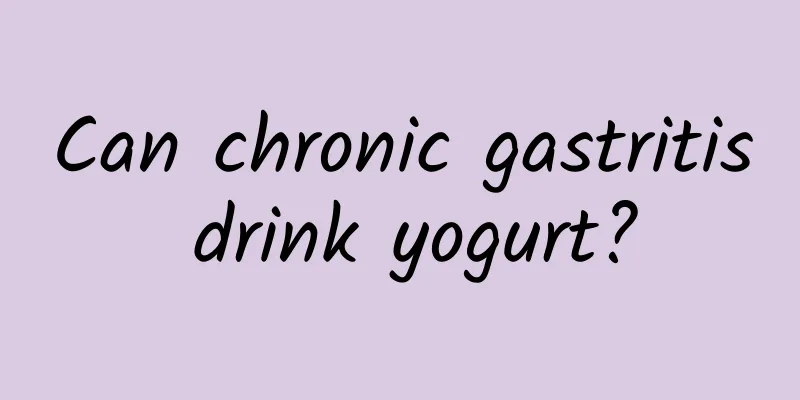Heart discomfort when emotional

|
Some people will find that their hearts are uncomfortable when they are sad, angry or happy. When their emotions fluctuate greatly, they will unconsciously experience symptoms such as palpitations, tachycardia, and chest tightness. If this happens, does it mean that there is a heart problem? The following article will introduce the reasons for these symptoms and how to deal with panic when you are emotionally excited. You can refer to it. Causes of heart discomfort when you are emotionally excited When people are emotionally excited, their blood flow speeds up, which triggers nerves and causes high blood pressure, resulting in insufficient blood supply to the heart. It is recommended to check whether there is heart disease Symptoms such as chest tightness when emotionally excited Chest tightness is often considered as "suffocation" in the heart. It is a subjective feeling of labored or breathless breathing. Those with mild symptoms will feel nothing serious, but those with severe symptoms will feel uncomfortable, as if a stone is pressing on their chest, and even have difficulty breathing. It may be a functional manifestation of the body's organs, or it may be one of the earliest symptoms of disease in the human body. The causes of chest tightness in people of different ages are different, and the treatments are also different. 1. Functional chest tightness (chest tightness without organic lesions) People who stay for a long time in a room with closed doors and windows and poor air circulation, or who are in a climate with low air pressure, or who encounter some unpleasant things, or even have quarrels or disputes with others, often feel chest tightness and fatigue. After a short rest, opening the windows for ventilation or going outside to breathe fresh air, you can relax your mind and regulate your emotions, and you will soon be able to return to normal. This type of chest tightness can be said to be functional chest tightness. There is no need to worry or seek treatment. 2. Pathological chest tightness (chest tightness with organic lesions) Chest tightness can not only be physiological, but also be caused by diseases in certain organs in the body, that is, pathological chest tightness. Such as respiratory obstruction - tumors in the trachea and bronchus, tracheal stenosis, external pressure on the trachea (thyroid enlargement, mediastinal tumor); lung disease - emphysema, bronchitis, asthma, atelectasis, pulmonary infarction, pneumothorax; heart disease - certain congenital heart diseases, rheumatic heart valve disease, coronary heart disease, heart tumors; diaphragmatic lesions - diaphragmatic bulging, diaphragmatic paralysis; fluid metabolism and acid-base balance disorders, etc. Pathological chest tightness can occur suddenly or slowly. Most of the sudden occurrences are due to acute traumatic or spontaneous pneumothorax, acute asthma, acute foreign body in the trachea, acute heart attack, acute pulmonary infarction, etc. Chronic chest tightness is a condition in which symptoms gradually worsen as the disease progresses. Emotionally excited, causing panic The heart beats with changes in speed, rhythm and strength. Under normal circumstances, the nervous system regulates these changes based on the body's blood demand. However, when you exercise vigorously, become overly nervous, smoke heavily, drink alcohol, drink strong tea or coffee, or become emotionally excited, you will feel your heart beat faster and the strength of the heart beat increase. This is a physiological manifestation. Only when disease causes changes in the speed, rhythm, and strength of the heartbeat, and the resulting symptoms of palpitations, is the condition pathological. Common diseases that cause panic Various heart diseases, such as coronary heart disease, hypertensive heart disease, rheumatic heart disease, congenital heart disease, myocarditis, etc., will cause changes such as increased heart beats or arrhythmias, which can cause palpitations. In the early stages of various heart diseases, the heart beats faster, hypertrophy of the left and right ventricles gradually occurs, the contractility of the myocardium increases, the heart beats faster, and palpitations occur. Heart diseases such as tachycardia, bradycardia and arrhythmia can also cause symptoms of palpitations. Anemia, high fever, hyperthyroidism, etc. can all cause palpitations. Symptoms of palpitations may also occur when hypoglycemia, low blood pressure or shock are caused by various reasons, or as one of the symptoms of tuberculosis poisoning when suffering from active pulmonary tuberculosis. Menopausal syndrome is often characterized by palpitations. When the autonomic nervous system functions are disordered, palpitations often occur, accompanied by symptoms of neurasthenia such as headache, dizziness, insomnia, fatigue, inattention, memory loss, irritability, anxiety, fear, etc. Sometimes there will be stabbing or dull pain in the precordial area, chest tightness, and difficulty breathing. Physical examination and other examinations show no obvious abnormalities. The onset of the disease is related to mental factors, and it occurs when one is emotionally excited. It is more common in young and middle-aged women. Dealing with panic The causes of palpitations are complex. It is impossible for people who are not specialized in the medical field to choose appropriate treatment based on subjective judgment. It is necessary to go to the hospital for relevant examinations and, after a confirmed diagnosis, receive treatment under the guidance of a doctor. Since palpitations occur differently from other symptoms, they may appear or disappear suddenly. Sometimes, palpitations may occur at home but disappear on the way to the hospital or after arriving at the hospital, making it difficult for the doctor to diagnose. Therefore, the best way is to record the following points in detail when palpitations occur and provide them to the doctor as a reference for diagnosis. |
<<: Effects and efficacy of Shengmai oral liquid
>>: How many milliliters of blood does a human body have?
Recommend
Causes of oral ulcers
Oral ulcers are a common oral disease, also calle...
How to treat premature graying of hair
For many people, hair is a symbol of their own im...
What are the early symptoms of pneumothorax and what are the signs of pneumothorax?
Factors that may trigger pneumothorax include str...
Will long-term tinnitus lead to deafness?
Tinnitus is a common disease. There are many reas...
What causes spots around eyes?
Many people often have some spots around their ey...
What is the cause of the chest depression?
Our chest area is very important. It can be said ...
Extremely low bone marrow proliferation
When suffering from a blood-related disease, many...
What are the traditional Chinese medicines for liver health?
The liver is the most important organ in the huma...
What causes headache on the right side
There are many reasons for headaches, but no matt...
What is Centella asiatica glycosides?
We rarely come into contact with Centella asiatic...
Ways to lower high blood pressure
With the progress and development of society, peo...
What are the early symptoms of gout? 7 symptoms of gout
The high incidence of gout has harmed many patien...
What are the effects of medical stone mattress?
As we all know, we spend a long period of our liv...
The pros and cons of daily sex
A moderate sex life is more beneficial to the bod...
What method of abortion causes the least harm?
In case of unexpected pregnancy, couples may disc...









